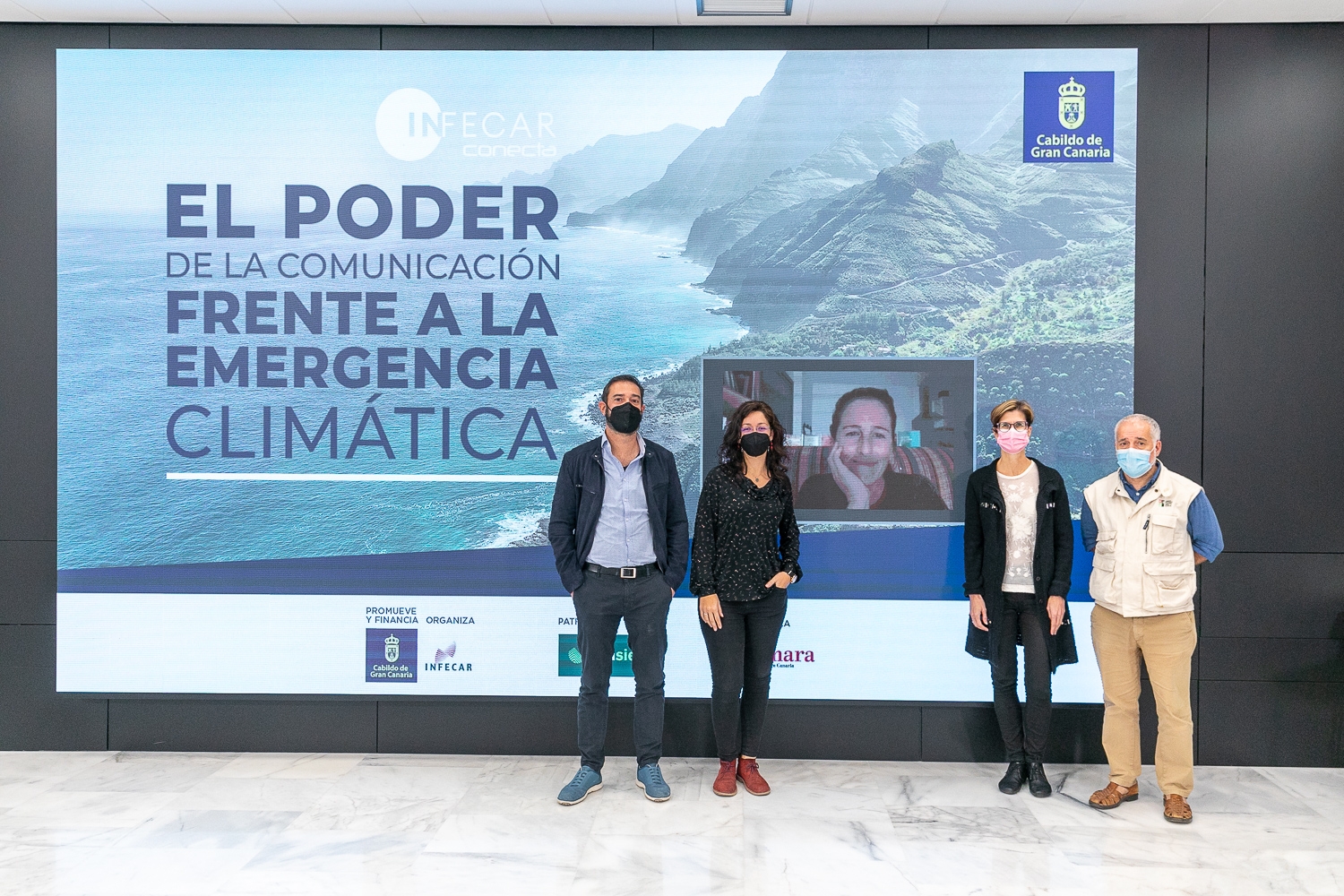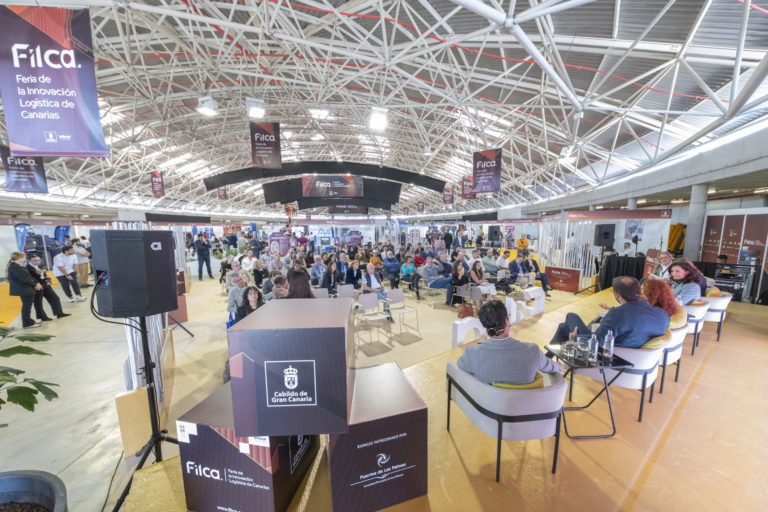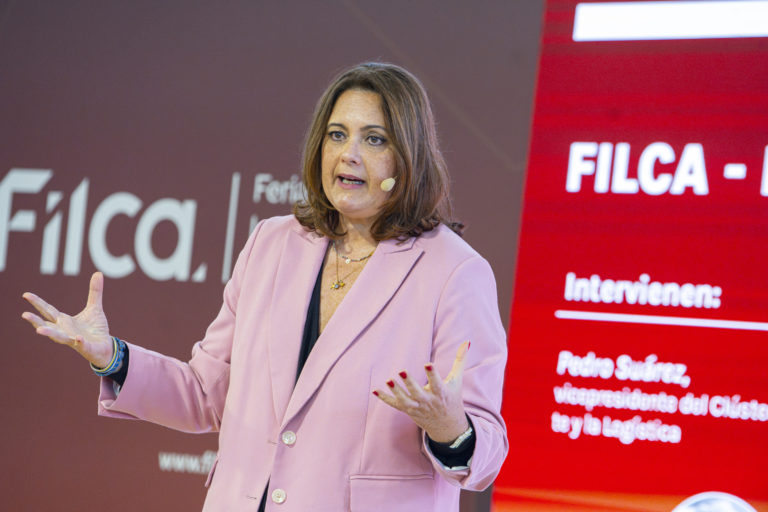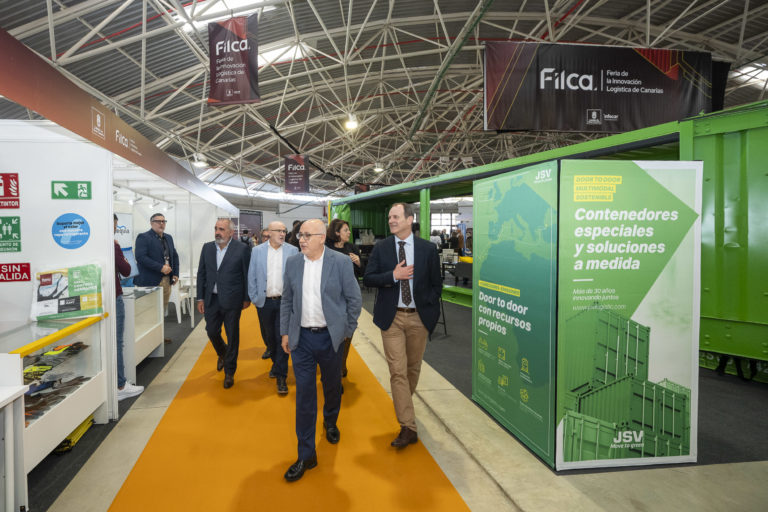- This last 2021 Connecting Space focused on analysing ‘The power of communication in the face of climate emergencies’.
- A study presented by Eugenio Reyes showed that the scientific community is more reliable than the media on this issue.
“Climate change is not a reality that is going to happen in the near future, it is something that is happening today”. So began yesterday, Thursday 16 December, the last edition of 2021 of INFECAR Conecta, dedicated to ‘The power of communication in the face of climate emergency’.
Promoted and financed by the Cabildo de Gran Canaria, with the sponsorship of Cajasiete and the collaboration of the Chamber of Commerce of Gran Canaria, this space has served to highlight the role of communication at a time of vital importance to reflect and celebrate the progress achieved in the face of the climate emergency, but also to analyse the road that still lies ahead.
Hosted by the filmmaker, environmental journalist and expert in Social Communication, Mariola Olcina, INFECAR Conecta showed that the population’s concern about the climate emergency is real, although “there is a lack of forcefulness in the messages offered by the media, which, moreover, are not presented as very reliable sources”.
With this in mind, Claudia Asensi, researcher in Social Communication and Participation in the face of Climate Change, with a Masters in Globalisation and Development from the University of the Basque Country, was the first of the guests to speak yesterday afternoon, with a presentation in which she reviewed the reality of the Canary Islands in this challenge of communicating the climate emergency.
“Today, the ecological footprint of the Canary Islands is almost 30 times its territory”, said the researcher, who also pointed out that “the problem lies in the fact that it is a very small territory with a very large demand for energy”. In this sense, Asensi pointed out that “turning towards an ecosocial model, adaptation and resilience will be fundamental for the Canary Islands when it comes to tackling climate change”.
Following her, Pere Estupinyà, science communicator, writer and speaker, advocated the need “to promote scientific training for journalists so that they can provide specialised information on climate change”. Estupinyà also reviewed the three models of action that are presented in the face of this situation: “mitigation, adaptation or suffering”, recognising that “today I believe that we will have no choice but to face the consequences of climate change and all that this entails for the planet”.
For his part, Eugenio Reyes, sociologist and professor of Communication and Social Dissemination of Science, Sustainability and Emergency at the International University of Valencia, as well as an environmental activist for more than 40 years, pointed out that “in the face of the climate emergency in the media, it is not a question of giving arguments but of transmitting with reliability. The success of the change is there”.
In this sense, “the role that the scientific community has in this matter is very important for the population, with 81% reliability compared to 4% that the media have,” said Reyes, based on a survey carried out to know the source on which the population is informed in the face of the climate emergency.
Lastly, Ruth Jaén, biologist and researcher at the ‘Viera y Clavijo’ Botanical Garden and coordinator of ‘Plant for the Planet’, first explained what this organization is about, which began in 2007 when Félix Finkbeiner, a German boy from nine years old presented a school project on climate change.
“In 2014 ‘Plant for the Planet’ arrived in Spain and, since then, more than 3,000 boys, girls and young people have been trained with our academies, evidencing the need for them to become climate change activists from a young age”, Jaén pointed out.
In this way, this last INFECAR Conecta of the season, which had face-to-face assistance at Infecar and also streaming monitoring, began a debate with the attendees, interested in knowing how to get better information or, in each case, provide better information. to their audiences, aware of the necessary training work they have to do so that the climate emergency has the relevance it deserves.



